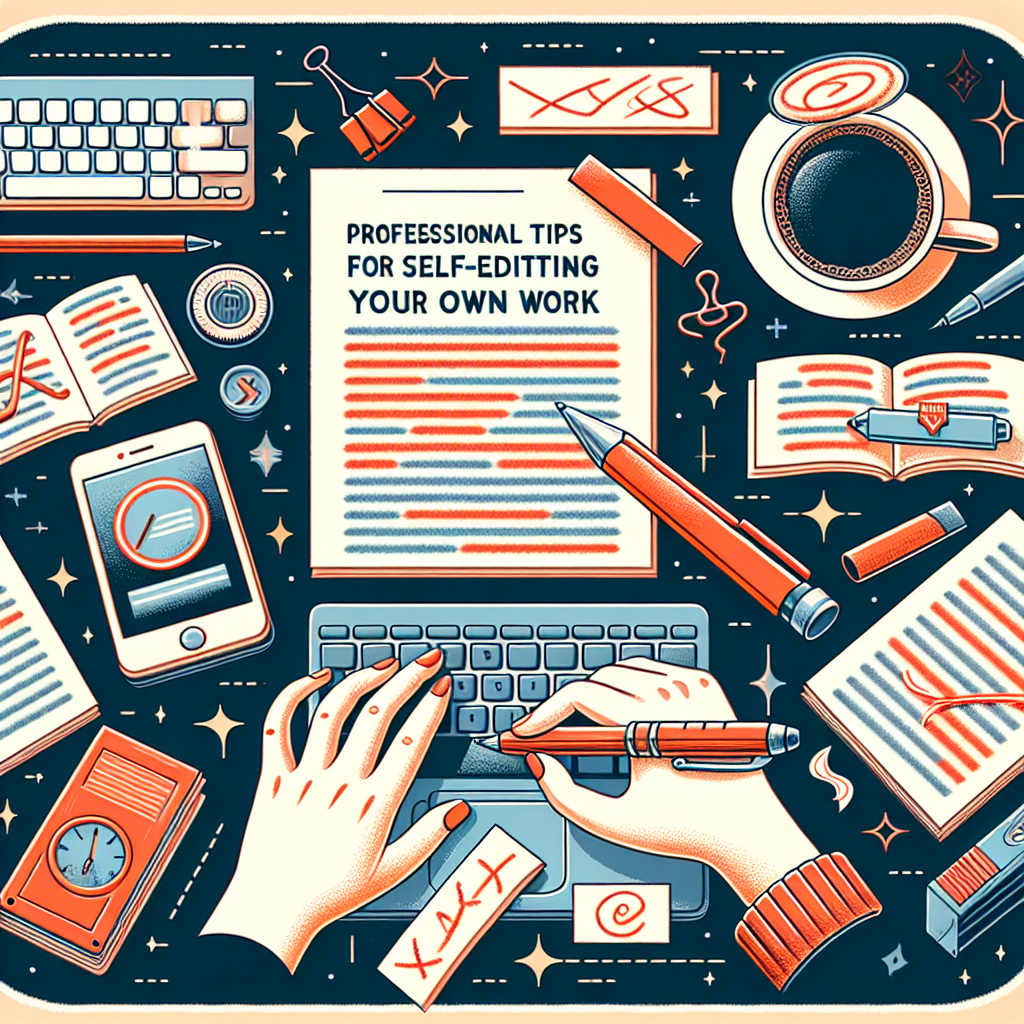Professional Tips For Self-Editing Your Own Work
Editing your own work can be a challenging task. It requires a keen eye for detail and a critical mindset. However, with the right approach, it can be a rewarding experience that improves the quality of your writing. Here are some professional tips to help you master the art of self-editing.
1. Take A Break
Before you start editing, it’s important to give yourself some distance from your work. This will help you approach your writing with fresh eyes and a clear mind. After you finish writing, take a break for at least a few hours, or even a day or two if possible.
When you come back to your work, you’ll be able to spot errors and inconsistencies that you may have missed before. This step is crucial in the self-editing process, as it allows you to see your writing from a different perspective.
2. Read Aloud
One effective way to catch errors in your writing is to read your work aloud. This can help you identify awkward phrasing, repetitive words, and other issues that may not be obvious when reading silently. Reading aloud also forces you to slow down and pay closer attention to each word.
When you read aloud, pay attention to the flow of your sentences and the overall structure of your writing. If something sounds off or doesn’t make sense, make a note of it and revise accordingly.
3. Use Editing Tools
There are many online editing tools available that can help you streamline the editing process. Tools like Grammarly and Hemingway Editor can identify grammar and punctuation errors, suggest alternative words, and provide readability scores.
While editing tools can be helpful, it’s important to remember that they are not foolproof. Always use your own judgment and don’t rely solely on automated suggestions.
4. Focus on One Issue at a Time
When editing your work, it’s easy to feel overwhelmed by the number of issues that need to be addressed. To avoid getting lost in the chaos, focus on one aspect of your writing at a time. This could be checking for grammar errors, improving sentence structure, or eliminating unnecessary words.
By tackling one issue at a time, you can give each aspect of your writing the attention it deserves. This approach can also help you stay organized and prevent you from feeling overwhelmed.
5. Get Feedback
Seeking feedback from others can be a valuable part of the self-editing process. Ask a friend, family member, or colleague to read your work and provide constructive criticism. Getting an outside perspective can help you identify blind spots and make improvements that you may have overlooked.
When receiving feedback, be open to suggestions and willing to make changes. Remember that feedback is meant to help you improve your writing, not criticize your work.
6. Proofread Carefully
After you have made revisions based on feedback and editing, it’s time to proofread your work one final time. Proofreading involves checking for typos, spelling errors, and formatting issues. It’s important to pay attention to the small details to ensure your writing is polished and professional.
When proofreading, take your time and read slowly. Look for errors in grammar, punctuation, and consistency. If possible, proofread your work multiple times to catch any mistakes you may have missed.
Conclusion
Self-editing is an essential skill for writers, and with practice, you can improve your editing abilities over time. By following these professional tips, you can elevate the quality of your writing and create work that is polished and coherent. Remember to take breaks, read aloud, use editing tools, focus on one issue at a time, seek feedback, and proofread carefully. With dedication and persistence, you can become a master of self-editing.
For more tips on self-editing and improving your writing skills, check out EditMojo for helpful resources and guides.
